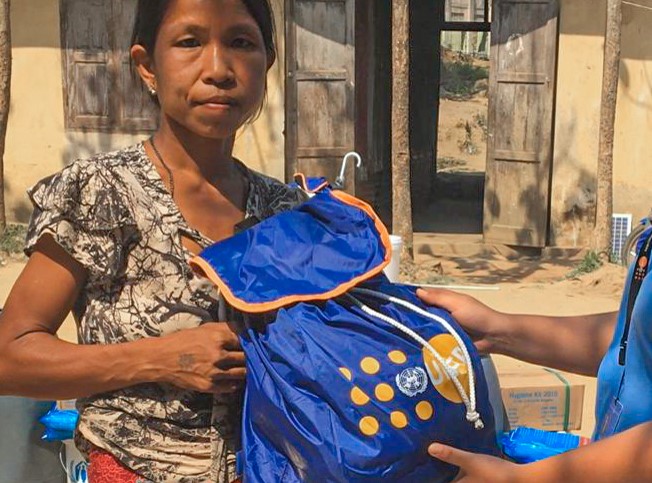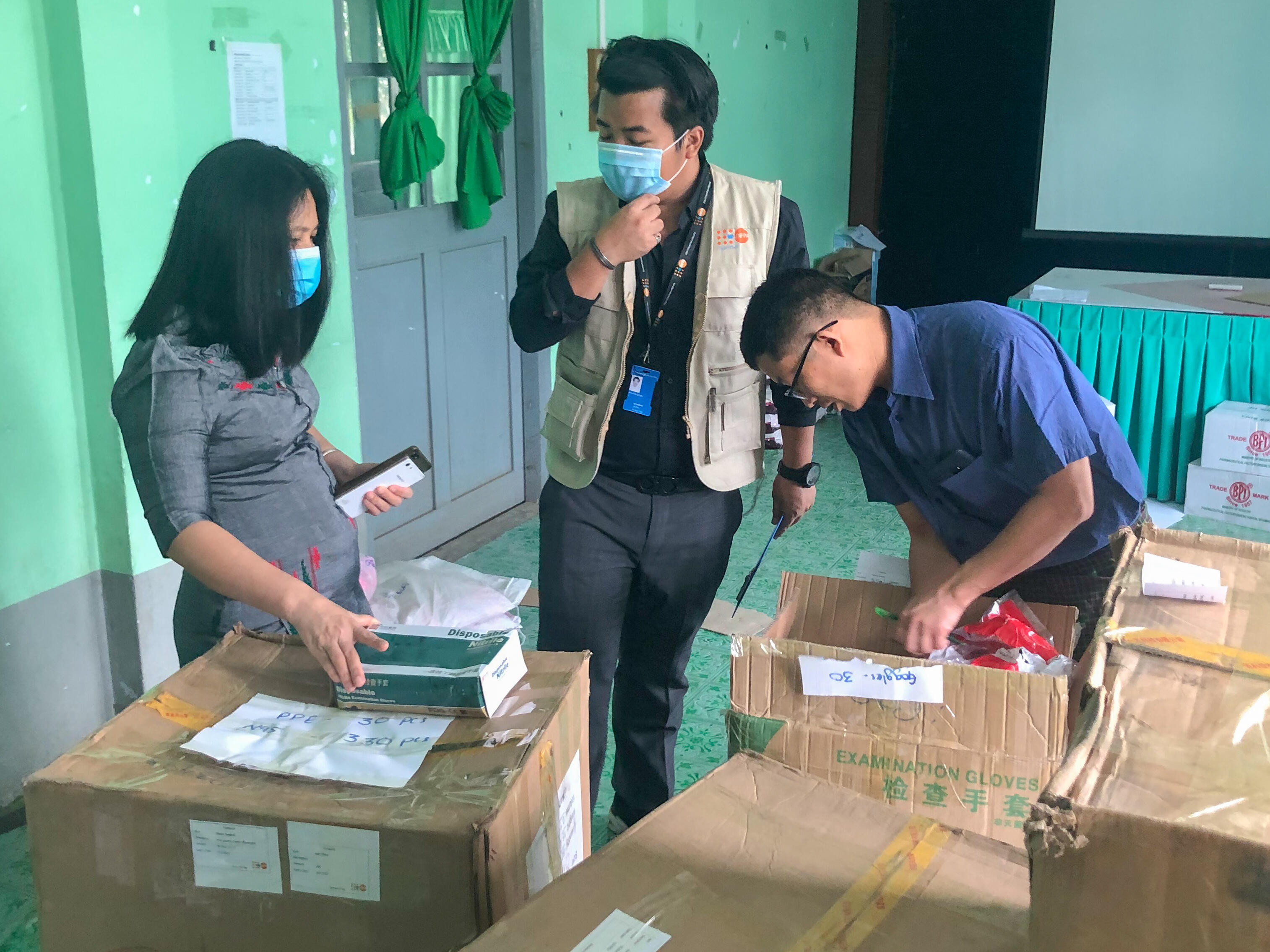United Nations in Myanmar is working towards ensuring continuity of sexual and reproductive health services amid COVID-19 pandemic.
The UN in Myanmar has come together as one to support COVID-19 preparedness and response. The next in a series of articles highlights the contribution of the United Nations Population Fund (UNFPA).
UNFPA initiatives in response to COVID-19 is aimed at supporting government and non-government partners towards ensuring continuity of sexual and reproductive health services, ending gender-based violence and ensuring psychological wellbeing of women, girls and young people amid COVID-19 pandemic.
COVID-19 strains public health systems including sexual and reproductive health services for women and girls and increases their vulnerability to gender-based violence (GBV) and exploitation. UNFPA, the United Nations sexual and reproductive health agency, is closely working with the Government, UN agencies, CSOs and humanitarian partners to keep health systems functioning and maintain the provision of sexual and reproductive health services and to ensure availability of and accessibility to critical GBV and mental health and psychosocial support (MHPSS) services during COVID-19.
Strengthening health systems; ensuring availability and accessibility of quality sexual and reproductive health services
UNFPA support to Ministry of Health and Sports and non-government partners is aimed at strengthening health systems and ensuring availability and accessibility of quality sexual and reproductive health services in any kind of emergency context, including COVID-19 pandemic. To protect frontline health workers from the risk of infection, UNFPA has procured personal protective equipment (PPE) for state and region health departments. UNFPA is also engaged in making available PPE to midwives and other health workers who are at the frontline in providing sexual and reproductive health services to women and girls, particularly in vulnerable communities.
UNFPA, as part of the coordinated UN response in Myanmar, works with UN country team in COVID-19 response, leading GBV and MHPSS preparedness and response at country level and also at the regional/ state level. In collaboration with Department of Social Welfare, UNFPA provides technical support to partners to adapt GBV services to COVID-19 by conducting GBV and MHPSS online trainings to case managers as well as safe house and helpline staff from different states and regions. UNFPA provides dignity kits packed with essential items for vulnerable women and girls from IDP camps in conflict areas and quarantine centers. UNFPA’s dignity kits are being adapted to COVID-19 response by adding items of soaps, sanitizers, flash lights and mobile phone card.
Protecting the frontline workers
UNFPA has provided 1,500 PPE kits for State Health Departments in Kachin, Kayin, Mon, Shan and Rakhine states. Additionally, protective supplies including 12,000 surgical masks, hand sanitizers, face shields and PPEs were distributed to the Maternal Reproductive Health Division in Nay Pyi Taw.
UNFPA is working to distribute a further 3,000 PPE kits for midwives to maintain the provision of sexual and reproductive health and rights services. In collaboration with Department of Public Health, UNFPA, in partnership with Maternity Foundation has planned to incorporate a COVID-19 Module into Myanmar version of Safe Delivery Application to equip basic health services providers particularly midwives to protect themselves and to minimize the spread of COVID -19 during the provision of health care services.
UNFPA is currently also providing technical support through Alliance Myanmar to set up LMIS in Wabargi, South Okkalapa, Phaung Gyi, CMSD and Yangon Regional Health Division for COVID-19 Response and contributing human resource and technical assistance to IT equipment and Chemonics (GHSC-PSM) implemented by WHO. In Phase 2, it will be extended to other hospitals and townships in Yangon Region, including Rural Health Centers and Sub-centers. In addition, UNFPA is planning to integrate COVID-19 support items into existing Logistics Management and Information Systems (LMIS) which covers 70 per cent of the country.
Further, UNFPA supports the Department of Social Welfare to distribute over 16,000 Dignity Kits for women and girls living in IDP camps in Kachin and northern Shan States.

in Northern Rakhine. Photo©UNFPA Myanmar
A roster of MHPSS experts has been made available to provide timely technical support to the partners. Planned support includes training and coaching for frontline health workers, particularly midwives, DSW staff at elderly care homes, GBV caseworkers and other partners.
UNFPA also conducted GBV in Emergency online training for 50 safe house and helpline staff at DSW to provide required GBV response services during the time of COVID-19 outbreak, considering the GBV risks specific to COVID-19 as well as safety of both clients and caseworkers. Further psychosocial support online training was conducted for 90 case managers to strengthen their capacity in providing basic psychosocial support for GBV survivors and sessions on mental health and psychosocial-related topics for the community.
UNFPA continues to deliver critical and life-saving GBV and SRHR services for the most vulnerable women and girls through 33 Women and Girls Centers and mobile and static clinics in Rakhine, Kachin, Kayah, Kayin and Mon and Shan States.
With the aim to reach out to adolescents and youth with COVID-19 messages including SRHR, GBV and MHPSS messages, UNFPA is using Love Questions Life Answers (LQLA), Baykin and circuit mobile applications to deliver the messages in coordination with Ministry of Health and Sports and 360ed.
UNFPA stands in solidarity with people of Myanmar in fighting the COVID-19 pandemic while ensuring women and girls access to sexual and reproductive health services, and protection from all forms of violence.
Original Source: https://myanmar.un.org/en/47960-united-nations-myanmar-working-towards-…


